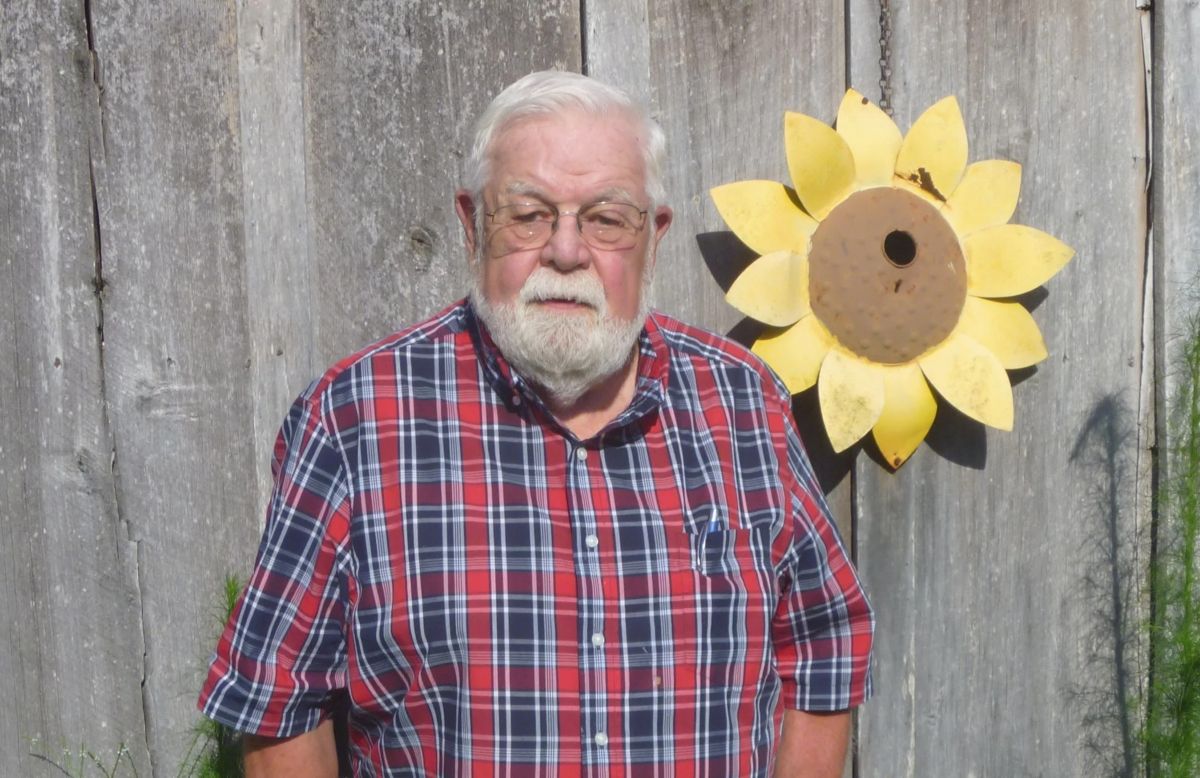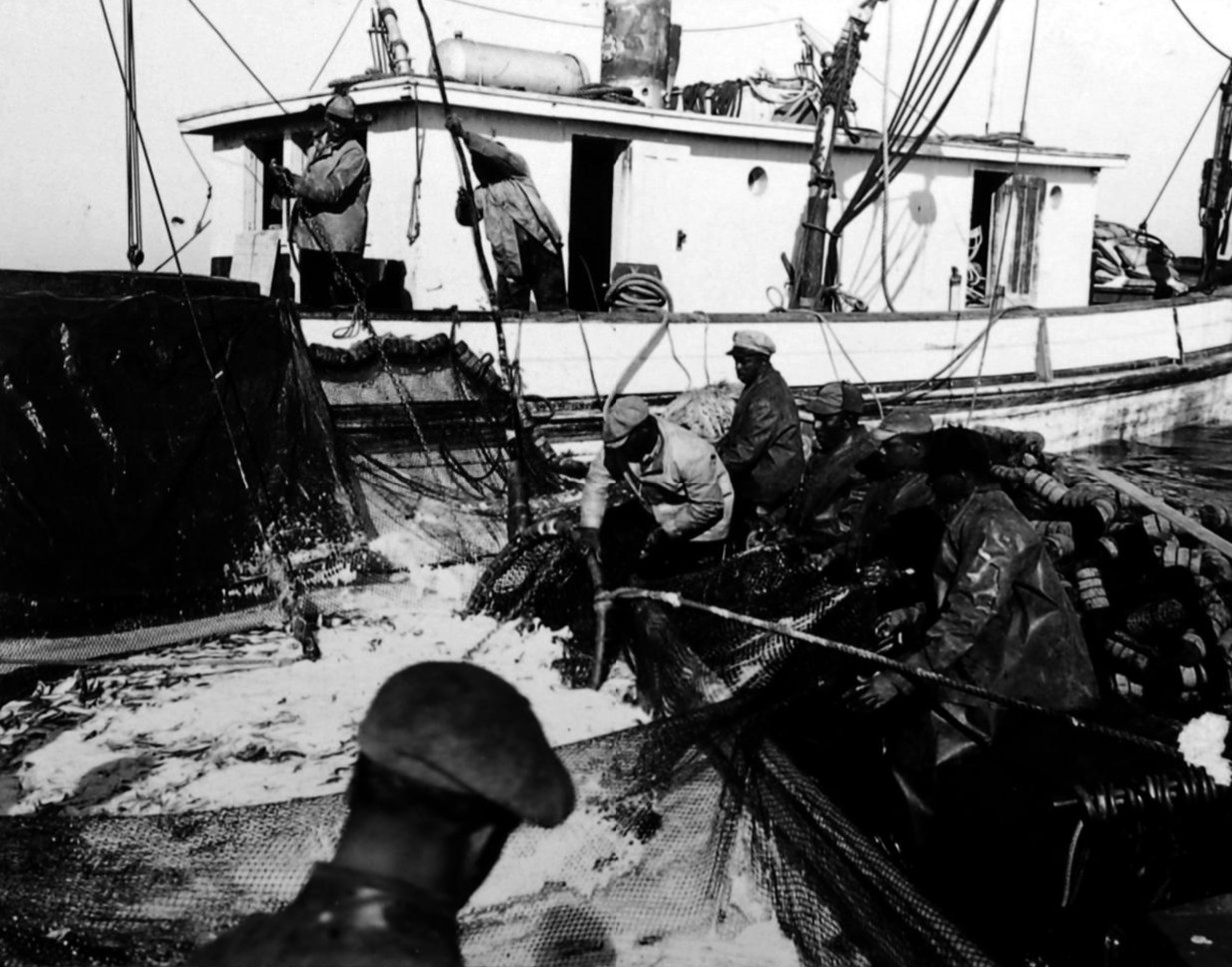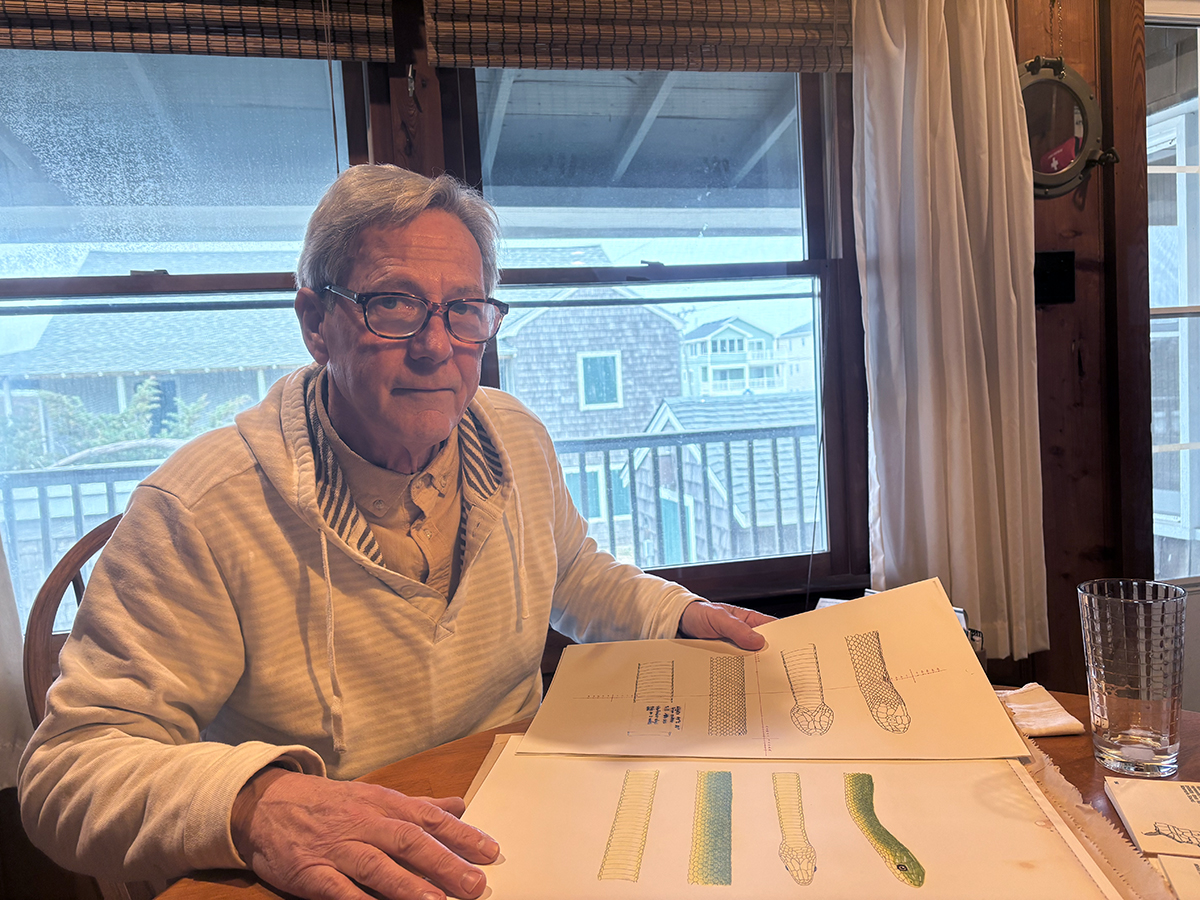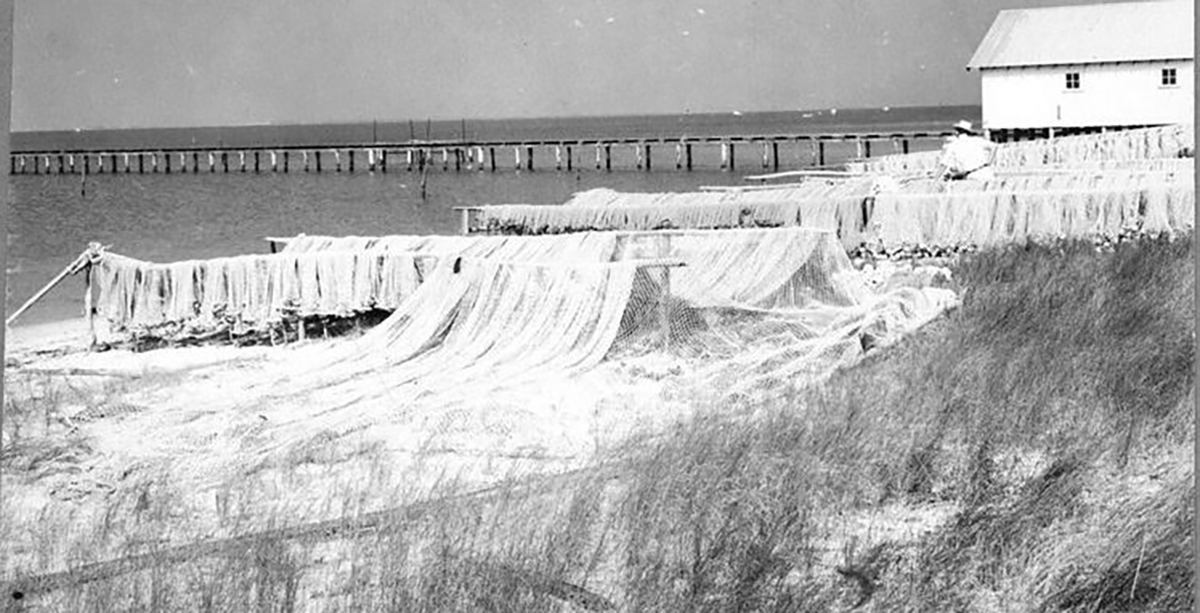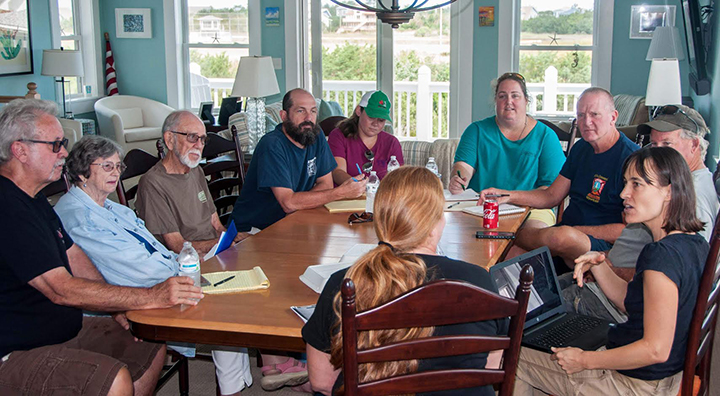
OCRACOKE – Federal and state money to help Ocracoke and Hatteras recover from Hurricane Dorian has been slow getting here, but one Outer Banks nonprofit has been moving far more quickly than any government agency to provide relief where it can.
Jeff Byard, the Federal Emergency Management Agency’s associate administrator for the Office of Response and Recovery, denied on Oct. 8 Gov. Roy Cooper’s request for individual assistance for Ocracoke and other areas of the state Dorian devastated in September. A bill to provide state relief didn’t become law until mid-November.
Supporter Spotlight
The floodwaters that surged into Ocracoke Village Sept. 6 reached unprecedented levels. Nearly every structure on the island was damaged. Although FEMA had provided help in restoring infrastructure, the decision to withhold funds for individual assistance was unexpected, said Justin Gibbs, Hyde County Emergency Services director. Gibbs said the decision was not typical of the federal government’s disaster response in the past.

“It’s a very unique situation with not getting a federal declaration,” he said. “Usually this is something that is managed at the federal level. It’s not usually something that has to be managed locally.”
Recovery has also been slowed by transportation woes and a lack of housing for workers. Yet, recovery is happening.
“I’m not going to say ‘whole again,’ because they’re not ever going to be whole again, but they’re moving their recovery forward,” Gibbs said.
Based in Southern Shores, the Outer Banks Community Foundation was founded 37 years ago by, among others, David Stick and Andy Griffith. Moving quickly after Dorian, the foundation created the Outer Banks Disaster Relief Fund as the storm made landfall.
Supporter Spotlight
“On Friday, September 6, when Hurricane Dorian was still blowing, I started getting news that Ocracoke had just been slammed and that it was under water,” said Community Foundation Executive Director Lorelei Costa. “It became immediately clear that Ocracoke, which has always been a part of our service area, would need help of some sort. I talked to my board president, Scott Brown, and we decided to encourage donors to earmark gifts for Ocracoke or Dare County or split it between the two.”
By the end of the day, the Outer Banks Disaster Relief was on the Community Foundation’s webpage and press materials had gone out. The response was quick and powerful.
 “By Monday morning (Sept. 9), we had raised $350,000. Five days after the storm we had raised a half million dollars. In two weeks, we had raised $750,000. In less than a month, $1 million and now we’re at $1.5 million,” Costa said recently.
“By Monday morning (Sept. 9), we had raised $350,000. Five days after the storm we had raised a half million dollars. In two weeks, we had raised $750,000. In less than a month, $1 million and now we’re at $1.5 million,” Costa said recently.
The response has crossed borders, both state and national.
“I’ve gotten donations from all across the United States and beyond the United States. I’ve gotten donations from Asia, from Europe, and Canada,” Costa said. “We had donations with love letters to Ocracoke. We had donations from people who had never been to Ocracoke but told us they had always wanted to go there. We had letters from people who were married on Ocracoke, or who honeymooned on Ocracoke or vacationed there every year with their family. Same with Hatteras. People love the Outer Banks and want to help the community get back on its feet.”
The Community Foundation is the largest Outer Banks nonprofit and helps to fund local charities and nonprofit organizations with grants and by handling their endowments. The Relief Fund carries with it a distinctive stipulation.
“Our promise, our guarantee, is that every single penny contributed goes to the victims of Dorian. I’m not keeping a penny of it to pay for the stamps on the envelopes,” Costa said. “When somebody donates by credit card, we pay the credit card fees.”
Raising the money, however, was only one part of the equation. How to distribute those funds was equally as important.
“We gave a little bit of money to … help nonprofits whose own facilities or equipment or buildings were harmed,” Costa said. “A great example is the Ocracoke Working Watermen’s Association … with a fish house right on Silver Lake where fishermen would sell their fish and seafood. That building got completely wiped out. Coming up flounder season, the fishermen didn’t have an icehouse where they could store their fish. We gave them a grant of $7,000 to help rebuild their icehouse in time for that fishery.”
The Community Foundation also rebuilt the ballfields that were destroyed and helped buy books for the library.
“I think what makes Ocracoke special, it’s not a town. It depends upon Hyde County, and it really depend on its nonprofits for its quality of life,” Costa explained. “It was a nonprofit that built its ballfield. It’s a nonprofit that buys the books for the library. All of these wonderful places on Ocracoke that might have been public in other places, are all nonprofit.”
Helping the nonprofits, though, is a small part of where the money has gone.
As donations flooded into the Relief Fund, most of the money was being earmarked for Ocracoke.
“We’re at $1.1 million for Ocracoke and almost $300,000 for Dare County. That is commensurate with the needs for those communities,” Costa said.
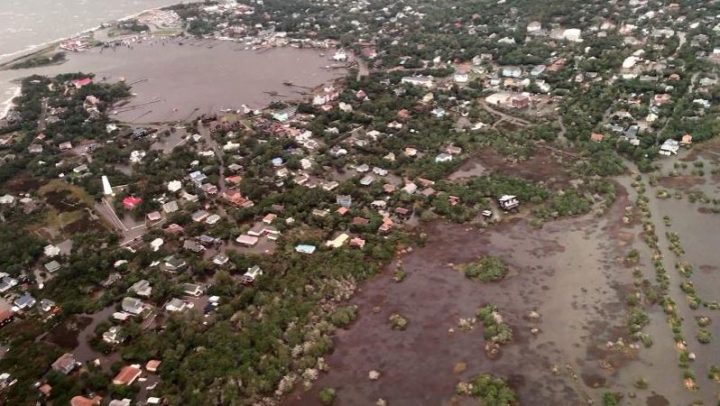
Ocracoke had never dealt with that amount of nonprofit funding, something that became apparent as the process moved forward.
“Before this storm, a lot of disaster relief (on Ocracoke) was done by the two churches, but after this storm everyone realized this was beyond the capacity of the two churches to handle together,” Costa said. “We asked the fire department to help with the case management. Wonderfully, they agreed. Their business is putting out fires and helping with medical calls. They’ve not done anything like this, and it took us a while to get started.”
Charles Temple has taught high school English for 16 years. He is also a volunteer fireman, and he is one of six members of the committee who help distribute the money. Temple and Costa agreed that the distribution started slowly, mostly because everyone was dealing with their own disasters and no one was experienced in case management.
“The process of figuring out the way it was best to do this here took a minute,” Temple said. “There was probably some frustration about that, but we felt like it was worth doing right rather than doing fast.”
Temple noted the tight-knit nature of the Ocracoke community, saying it’s both a strength and a confounding issue when it comes to recovery.
“Down here, everybody is kin to, works with and (is an) ex of everybody else. It’s a very, very tight community where lines of loyalty, connection and obligation get very tangled, which is fine. It works really quite well,” he said. “But when you’re talking about handing out a million dollars, all of a sudden that changes the equation.”
Caseworkers were trained and those caseworkers then took on a second role.
“What we settled on was using caseworkers who could be advocates for their clients to us, but we wouldn’t know who the client was until we had already made decisions about giving out money,” Temple said.
And it has all been done on a volunteer basis.
A significant portion of the money has gone to taking care of immediate needs, moving quickly where government funding and agencies often take weeks if not months.
“Sometimes, if the water got in your house and it got to your washer and dryer, your stove and your refrigerator, you know you’re going to need that … OK, you’ve got an appliance package,” Temple said.
The firehouse committee, as the Ocracoke Fire Protection Association’s relief committee is informally known, has also helped with utility bills and has an agreement with the Variety Store, the local grocer.
“Getting to tell somebody you’ve got plenty of money, go get some food — don’t worry about that. Whatever else you’ve got to worry about, don’t worry about that. It’s pretty great,” he said.
The committee is doing more than funding household necessities. Through the North Carolina Office of State Budget and Management, or OSBM, Hyde County is purchasing 35 travel-trailers for use as temporary housing.
“They (OSBM) actually provided a $600,000 grant for temporary housing … They were FEMA assets that were used during Florence,” Gibbs said.
“We’ve committed $200,000 to help with hookups, placing power poles, water septic,” Temple added.
The Community Foundation and the firehouse committee are looking beyond the immediate needs, moving to ensure funds are available to address long-term issues.
“Long-term recovery is really long term — a year, even two years. That’s with home repairs and home rebuilds,” Costa said. “A lot of that is with volunteer labor in partnership with … the United Methodist Committee on Relief. They’re sending teams of volunteers to Ocracoke, helping families rebuild their homes. We are paying for the supplies and in cases of little projects that they can’t do, like electrical and HVAC, we’re helping with the subcontractors. We committed $300,000 for that on Ocracoke and maybe $100,000 to do that on Hatteras.”
The Ocracoke partnership among nonprofit funders, the community and government assistance as it becomes available is, Gibbs said, unusual and something that he said may need to be replicated in other places.
“I think with what we’re trying to do … I’m hoping we can be a model for a community in the future if they’re affected and they don’t get a federal declaration,” he said.



